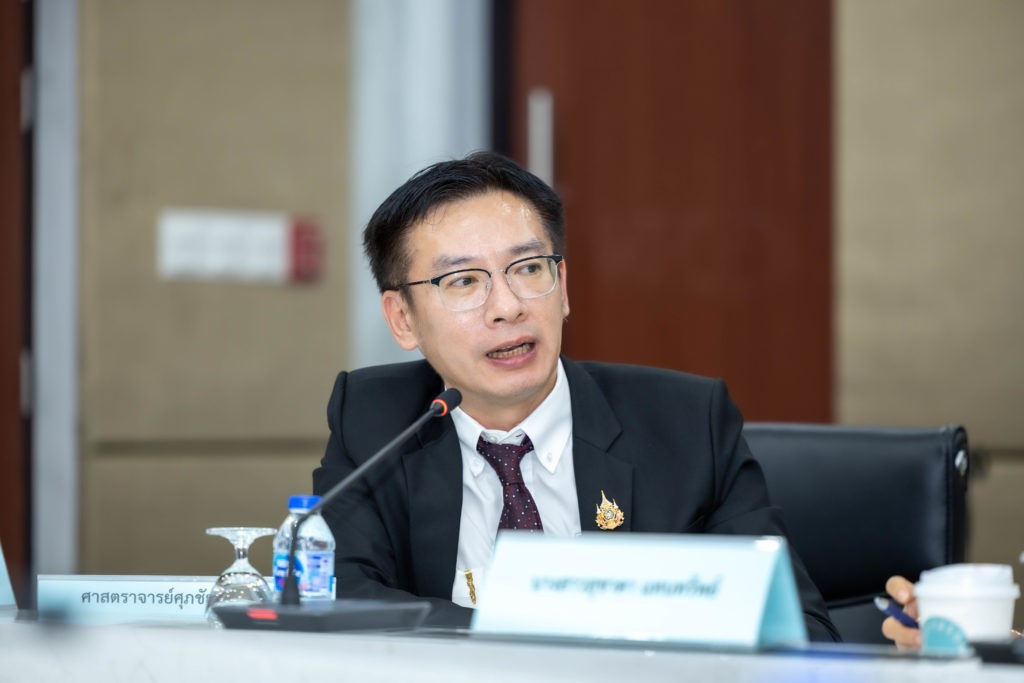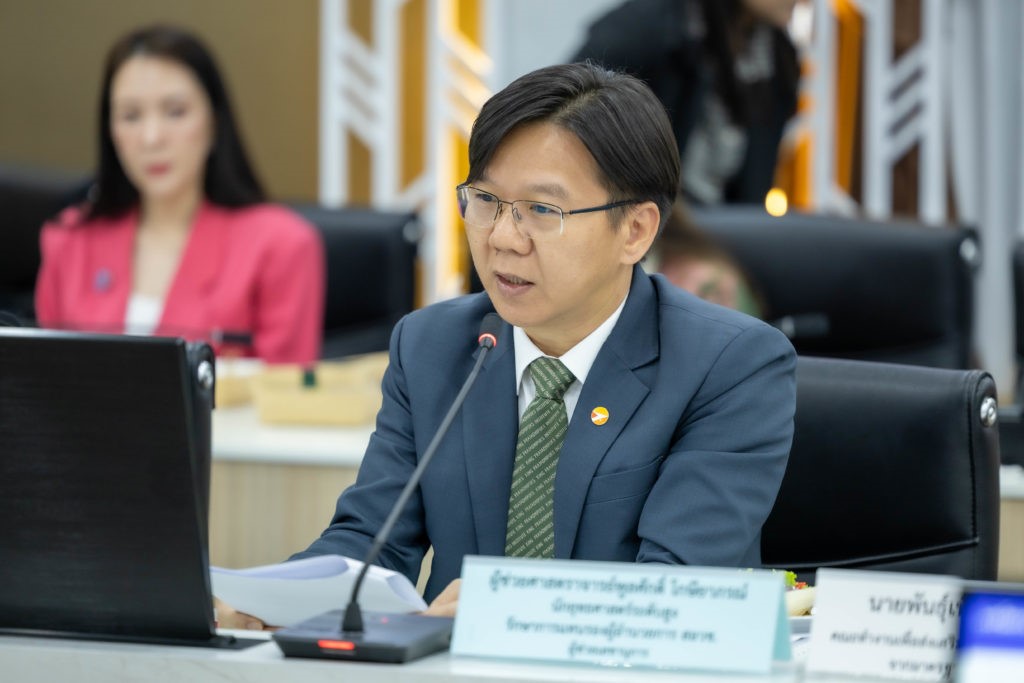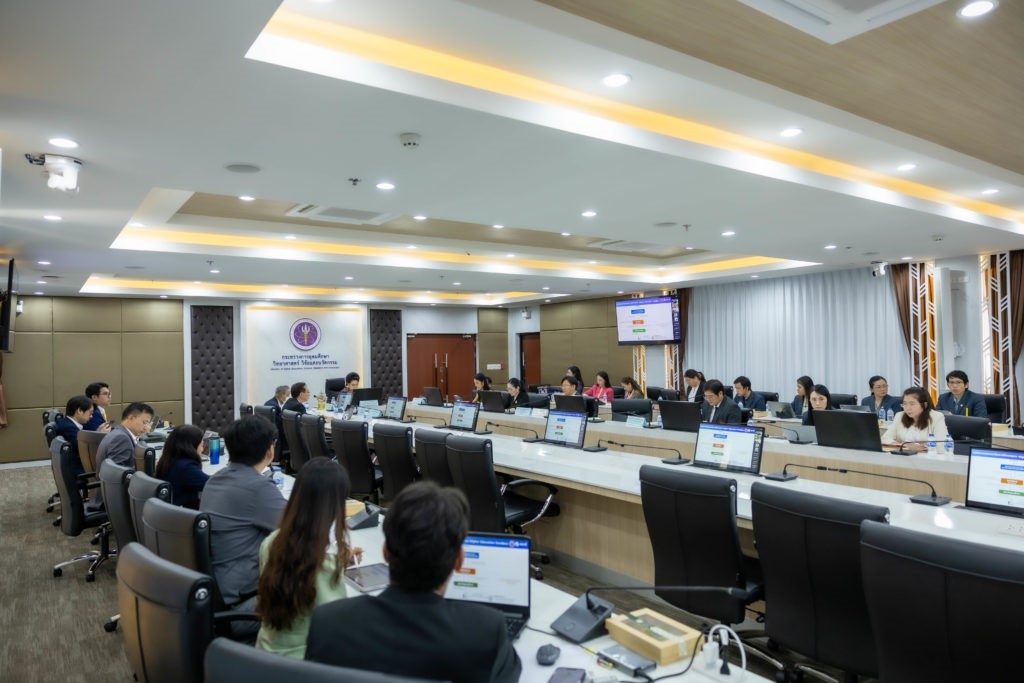The Special Committee on Higher Education Innovation, under the National Higher Education, Science, Research and Innovation Policy Council (Policy Council), convened on 3 October 2024. Chaired by Ms. Supamas Isarabhakdi, Minister of Higher Education, Science, Research and Innovation (MHESI), the committee approved five new higher education sandbox programs.

According to Minister Supamas, these programs target critical industries with an urgent demand for skilled professionals, including semiconductors, cybersecurity, and rail systems. She emphasized the significance of the new Semiconductor Engineering Program, developed as a national initiative to produce highly skilled graduates for the semiconductor sector, which is expected to attract foreign investment and serve as Thailand’s new growth engine. This program, co-created by 15 higher education institutions and eight leading companies, integrates industry participation in curriculum design, expert guidance, provision of advanced tools, internships, and guaranteed job placements for graduates. The Cybersecurity Program, another key initiative, will enable current professionals to pursue a second degree while working.

Professor Dr. Supachai Pathumnakul, Permanent Secretary of MHESI, revealed the five newly approved programs: 1) Semiconductor Engineering, 2) the K-Engineering Work-integrated Learning (WiL), 3) Cybersecurity, 4) Advanced Biomedical Science and Health Business Innovation, and 5) Railway Systems Engineering.

During the meeting, Dr. Siriporn Pittayasophon, Senior Strategist and Acting President of NXPO, reported on the progress of ongoing sandbox programs which have been developed using both bottom-up (institution-initiated) and top-down (MHESI-academia-industry collaborative) approaches to address workforce shortages in sectors such as semiconductors and advanced electronics. To date, 11 proposals under the bottom-up approach have been approved, aiming to produce 19,695 graduates over the next decade, with 530 students already enrolled in the 2023 academic year. The top-down Semiconductor Engineering Program will soon be launched, involving a network of 15 universities and eight private companies. Additionally, at least five more sandbox programs are expected to be approved by the end of 2024.

Assoc. Prof. Dr. Poolsak Koseeyaporn, Senior Strategist and Acting Vice President of NXPO, provided details of the five approved programs:
- Bachelor of Engineering in Semiconductor Engineering Program (King Mongkut’s Institute of Technology Ladkrabang – KMITL): This is the country’s first national program specializing in semiconductor engineering, covering the full value chain: IC design, fabrication, and assembly and testing. It aims to strengthen the domestic semiconductor industry and attract foreign investment by producing 480 skilled engineers. It will foster collaboration between 15 universities and eight industry partners. Fifteen higher education institutions involved are: KMITL, Khon Kaen University, Chulalongkorn University, King Mongkut’s University of Technology North Bangkok, King Mongkut’s University of Technology Thonburi, Chiang Mai University, Kasetsart University, Suranaree University of Technology, Prince of Songkla University, Rajamangala University of Technology Lanna, Burapha University, Panyapiwat Institute of Management, Mahanakorn University of Technology, Naresuan University, and Thai-Nichi Institute of Technology.
- K-Engineering WiL (Work-integrated Learning) Program (KMITL): This program offers intensive WiL-based education, in collaboration with 20 industry partners, where undergraduate students intern for 3-4 semesters and graduate students for 1-2 semesters. High school and vocational students can also enroll in Pre-degree courses to earn undergraduate credits. The program targets the production of 450 career-ready engineers across bachelor’s, master’s, and doctoral levels.
- Bachelor of Science in Cybersecurity Program (Panyapiwat Institute of Management): Developed in collaboration with the Association of Council of IT Deans and nine higher education institutions, this program equips graduates with cybersecurity skills tailored to the digital industry. It also offers upskilling opportunities for working professionals and students from related fields pursuing a second degree. The program aims to produce 150 graduates, including those pursuing a second degree.
- Master of Science in Advanced Biomedical Sciences and Health Business Innovation Program (Mahidol University): This program focuses on producing highly skilled professionals in five areas: medical devices, drug discovery and development, biologics and vaccines, medical robotics, and AI-based medical diagnosis. It emphasizes advanced technical skills alongside entrepreneurial and innovation perspectives, preparing graduates for high-value industries or to create startups in the medical and health sectors. The program aims to produce 500-1,000 master’s degree graduates.
- Master of Engineering and Doctor of Philosophy in Railway Systems Engineering (Mahidol University – International Program): This program is designed to train highly skilled professionals with comprehensive expertise in railway systems engineering, aligning with the country’s railway development strategy and supporting the growth of the domestic and international rail industry. The program is co-created with the Rail Technology Research and Development Agency (RTRDA) and industry partners. The goal is to produce 50-100 graduates at the master’s and doctoral levels.

Professor Dr. Supachai emphasized that the evaluation and monitoring process has been established to ensure the quality of graduates meeting industry needs, and improve future programs. These five approved programs are set to launch in 2025.






















